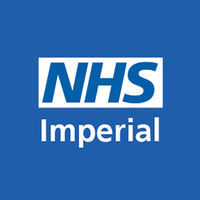Request Demo
Last update 08 May 2025
Bile Acid Malabsorption, Primary
Last update 08 May 2025
Basic Info
Synonyms BILE ACID MALABSORPTION, PRIMARY, Bile Acid Malabsorption, Primary, PBAM + [1] |
Introduction- |
Related
1
Drugs associated with Bile Acid Malabsorption, PrimaryTarget |
Mechanism FXR agonists |
Active Org.- |
Originator Org. |
Active Indication- |
Inactive Indication |
Drug Highest PhaseDiscontinued |
First Approval Ctry. / Loc.- |
First Approval Date20 Jan 1800 |
2
Clinical Trials associated with Bile Acid Malabsorption, PrimaryNCT02713243
A Double Blind, Randomized Placebo Controlled Crossover Multiple Dose Study of LJN452 to Assess Safety, Tolerability and Efficacy in Patients With Primary Bile Acid Diarrhea (pBAD).
The purpose of this study is to determine whether LJN452 improves the symptoms of bile acid diarrhea and to assess its safety and tolerability profile in patients with primary bile acid diarrhea (pBAD) to guide decision-making regarding further clinical development in this indication.
Start Date16 Jan 2016 |
Sponsor / Collaborator |
NCT01585025
Obeticholic Acid Treatment in Patients With Bile Acid Diarrhoea: an Open-label, Pilot Study of Mechanisms, Safety and Symptom Response.
The investigators propose to develop studies of obeticholic acid (OCA) in patients with bile acid diarrhoea. OCA is a semisynthetic bile acid, also known as 6αethylchenodeoxycholic acid or INT747,and is a potent farnesoid X receptor (FXR) agonist. Preliminary data suggests that patients with bile acid diarrhoea have impaired production of the ileal hormone Fibroblast Growth Factor 19 (FGF19). FGF19 is stimulated by FXR agonists, and regulates bile acid synthesis. This study is a pilot, proof-of-concept, open-label study to investigate whether OCA can stimulate FGF19 in bile acid diarrhoea patients to provide a safe and effective treatment.
Start Date01 Apr 2012 |
Sponsor / Collaborator |
100 Clinical Results associated with Bile Acid Malabsorption, Primary
Login to view more data
100 Translational Medicine associated with Bile Acid Malabsorption, Primary
Login to view more data
0 Patents (Medical) associated with Bile Acid Malabsorption, Primary
Login to view more data
35
Literatures (Medical) associated with Bile Acid Malabsorption, Primary01 Oct 2022·The Lancet Gastroenterology & Hepatology
Safety and efficacy of liraglutide versus colesevelam for the treatment of bile acid diarrhoea: a randomised, double-blind, active-comparator, non-inferiority clinical trial
Article
Author: Sonne, David P ; Brønden, Andreas ; Kårhus, Martin L ; Knudsen, Elisabeth ; Forman, Julie L ; Haaber, Anne ; Langholz, Ebbe ; Vilsbøll, Tina ; Knop, Filip K ; Hansen, Svend H ; Dragsted, Lars O ; Krakauer, Martin
01 Aug 2022·GastroenterologyQ1 · MEDICINE
Common Genetic Variants in the Bile Acid Synthesis Enzyme CYP7A1 Are Associated With Severe Primary Bile Acid Diarrhea
Q1 · MEDICINE
Article
Author: Pattni, Sanjeev S ; Nolan, Jonathan D ; Balesaria, Sara ; Johnston, Ian M ; Appleby, Richard N ; Walters, Julian R F
01 Feb 2021·The Lancet Gastroenterology & HepatologyQ1 · MEDICINE
The overlap between irritable bowel syndrome and organic gastrointestinal diseases
Q1 · MEDICINE
Review
Author: Aziz, Imran ; Simrén, Magnus
Analysis
Perform a panoramic analysis of this field.
login
or

AI Agents Built for Biopharma Breakthroughs
Accelerate discovery. Empower decisions. Transform outcomes.
Get started for free today!
Accelerate Strategic R&D decision making with Synapse, PatSnap’s AI-powered Connected Innovation Intelligence Platform Built for Life Sciences Professionals.
Start your data trial now!
Synapse data is also accessible to external entities via APIs or data packages. Empower better decisions with the latest in pharmaceutical intelligence.
Bio
Bio Sequences Search & Analysis
Sign up for free
Chemical
Chemical Structures Search & Analysis
Sign up for free

